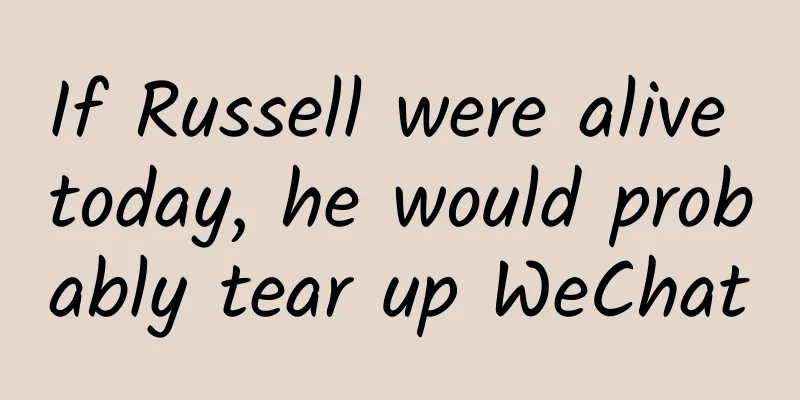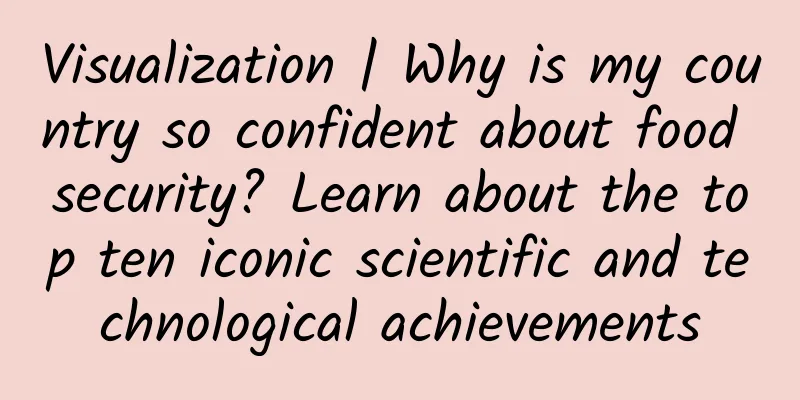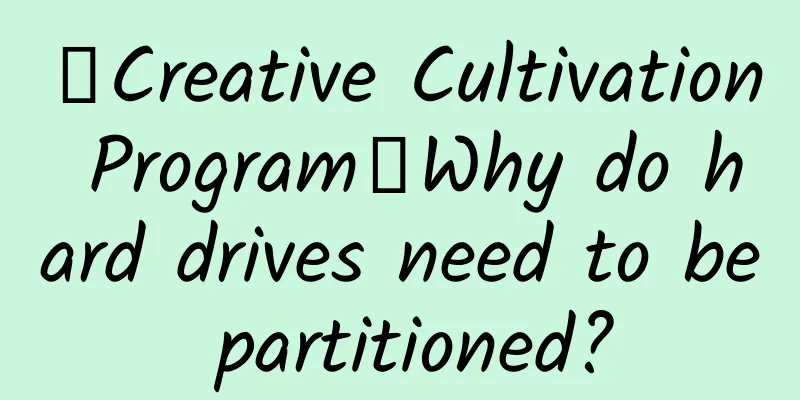|
[[155156]] "The ability to spend leisure time wisely is the ultimate product of civilization. Few people have yet reached this level." - In 1930, Bertrand Russell wrote this sentence in his popular book The Conquest of Happiness (often translated in China as "The Road to Happiness"). I wonder what the modern people feel when they read this? After sighing, I can't help wondering: everyone says tomorrow will be better, so 85 years later, is the general way we spend our leisure time more wise? Is it more able to make people feel genuinely happy, or the opposite? The answer we can give is probably pessimistic. Because more and more people today complain: "All my spare time is occupied by mobile phones!", "WeChat completely ruins my concentration, I can't help but take out my phone to check it while working/studying!". There are also more and more people who claim or are believed to be suffering from "severe addiction to mobile social networking", "chronic procrastination caused by mobile phone allergy", "keyboard man syndrome" and so on. These are "difficult and complicated diseases" that only exist today, or in the Internet age. Of course, the mention of "WeChat" in this article is just a representative. WeChat, Weibo, Twitter, Facebook, Momo, etc., all these information platforms active inside and outside the Great Firewall are loved by modern people because of their rich content and easy access. But at the same time, are they destroying the real happiness in life and even making people lose the ability to work and study under the banner of instant messaging, online social networking, self-media, etc.? In these aspects, have we not fully understood their negative effects? Russell died in 1970, so he certainly couldn’t make a personal judgment. But we can refer to the characteristics of the pleasures that he thought should be classified with gambling and were not beneficial to the overall happiness and well-being of life: "Once this kind of pleasure stops, people will feel irritable and dissatisfied, feeling that something is missing, but they don't know what it is. This kind of pleasure will not bring anything that can be called happiness. ... After a moment of joy, all that is left is fatigue, disgust and emptiness." How about it? Does it remind you of the time when you just put down your phone for more than ten minutes, and immediately felt that you had to check your Moments, otherwise you would definitely miss something, but as soon as you opened WeChat, you were distracted again, and it took you an hour to come back to your senses? In "The Conquest of Happiness", Russell pointed out several necessary conditions and unfavorable factors for people to achieve happiness in the era of industrialization and market economy. In comparison, we will find that what people complain about today, he had already warned: excessive and modern "passive entertainment" (in those days there were only radio and movies) will chop people's attention, fragment people's time, alienate people's social life, and even distort people's three views and destroy people's ability to think rationally. For this reason, he once warned fiercely: "Modern parents should be severely criticized for providing their children with too many passive entertainment activities such as watching movies and eating delicious food." Most of the problems we face today were already showing their first signs in the society that Russell observed 85 years ago. Sadly, these problems have not been solved with the development of human society 85 years later, but have been magnified to a large extent due to technological progress. For example, WeChat is obviously more "addictive" than movies. But their essence remains the same. So, let's read what the wise men of nearly a century ago analyzed. Since WeChat is the most familiar to domestic readers, and its comprehensive ecology and functions almost overlap with the aspects that we feel annoyed about, let's take it as an example. Note: This article does not intend to portray WeChat and all the other software or websites mentioned above as a scourge. It is just that while we affirm that they have indeed brought convenient and colorful communication, entertainment, and content delivery functions to modern people, and even created good conditions for us to greatly improve productivity, we must also admit that they have also brought a lot of troubles to modern people. If we can find a way to figure out the ins and outs of these problems and solve them, it will obviously make life better. The negative effects of “connectors” WeChat officials often use "connectors" as their product positioning. This metaphor very well reflects the main functions and characteristics of the WeChat ecosystem. As the starting point and fulcrum of the "connector", WeChat is the connection between people - instant messaging (core function), social networking (friend circle), and interactive entertainment (online games, and those stand-alone games that can upload your points for ranking). As an extension of the ecosystem, it is the connection between people and content (the media and self-media subscription accounts you follow), the connection between people and work (WeChat corporate accounts, or the work groups your leaders have created), and the connection between people and services, etc. The reason why it is called "connection" is that it allows what was previously unreachable to be reached now, what was previously reached at a high cost to be reached now at a low cost, and what was previously reached only at a low frequency to be reached at a high frequency. Simply put, you can chat with people by clicking on the main interface of WeChat, which is cheaper than using text messages; you can complete social interaction by swiping your Moments, which is more intimate and simpler than the social scenes on Renren and Weibo; you can see news and news summaries pushed by various media, as well as various pictures, texts or messages pushed to you by self-media that you like to see, all of which are subscribed by you, and you don't have to go to portals or forums to filter them yourself. In short, you can enter a world with everything by clicking on the green-bottomed white cloud icon on your phone. And it also gives you sufficient reasons not to have moral baggage: What if I don’t read and understand the goddess’s circle of friends in time? What if I don’t see the “life guidance” and “high-quality practical articles” of the big V in the first place? What if the boss assigns a task in the work group? … Boredom So, when you are away from WeChat, even for just ten minutes, you will feel bored. As Russell said: "One of the essences of boredom is the contrast between actual circumstances and more pleasant ones that one imagines." Yes, compared to the elaborate creations of joke makers, photoshopped goddess photos for an hour, and selfies for an hour, how boring life and work around us are! It's not just the things that are pleasing to the eye. When you read negative social news and expert comments, you get angry, and when people you hate forward rumors and chicken soup that you think are stupid in their circle of friends, your "sorry for their misfortune and angry at their lack of struggle" mixed with a sense of superiority may be exactly what you want in your heart: "Boredom is essentially a stubborn wish for something to happen, not necessarily a good thing, just something that lets the bored person know that one day is different from another. In short, the opposite of boredom is not pleasure but excitement." So every time you finally make up your mind to put down your phone and return to real life, you will feel even more bored within ten minutes, so you have to pick up your phone again: "Excitement is a drug, it becomes more and more addictive." Russell pointed out with concern: "Too much travel and too many impressions are not good for young people, because they will not be able to endure the monotony that can bring them success when they grow up." What Russell didn't expect was that the cost of "excitement" is so low nowadays. Without leaving home, you can travel to another world through a small box in your hand. In comparison, the travel that the old man criticized in the past is so troublesome that it is unbearable. "People who can afford to go are always moving from place to place, having fun wherever they go, dancing and drinking, and always wanting to have more fun in the new place for some reason. Those who have to earn a living are bound to feel bored during working hours." Today, this contrast is even stronger, and the annoyance it causes is naturally more serious. People back then were only stimulated by chats, radio, newspapers, and movies, but today, as soon as people open their Moments (which can happen within eight hours of work), they will be bombarded with nine pictures of tall, rich, handsome, white, rich, and beautiful people. But few people really realize: "This is an aristocratic ideal life. I have no intention of slandering it, but I am afraid that like other ideals, it will be much more difficult to achieve than the idealists expect it to be." The handsome, rich and young people were excited in the Maldives, and you followed them in your circle of friends and got excited. It sounds like you saved money on the plane ticket and got a bargain, but that’s not necessarily the case: the handsome, rich and young people sunbathed, swam, and attended the Hai Tian Sheng Yan; and you just watched the excitement through your retina. Three weeks later, the handsome, rich and young people returned home happily, but you felt inexplicably unbearable three minutes later. Three hours later, you finally remembered to work hard and decided to check your circle of friends again before starting work. Then you saw a push notification from your favorite high-profile joke teller, and you decided to read it first to learn some new tricks... When you go from one big V’s new work to another big V’s witty remarks on Zhihu, or from a joke teller’s new comic strip to another celebrity’s new gossip on Weibo, what is happening is essentially the same. Fragmentation In this way, not only is your spare time completely occupied by WeChat, but you will also unknowingly cut up your entire working time and fill it into this bottomless pit. For this reason, you have to bear double losses: first, the total time consumed by WeChat has increased greatly; second, the time you can work, study, and think has been ruthlessly chopped into pieces. Russell believes that the latter will lead to serious loss of work efficiency and happiness: "The increased happiness and increased productivity that can be achieved by cultivating an orderly mind - thinking about one thing fully at the right time, rather than thinking about it sporadically all the time - is astonishing." What? You said that sometimes you are tired and stressed from work and study, and you have to open WeChat to relieve yourself? But Russell believes that if you open WeChat to read jokes, scold experts, flatter male gods and goddesses, or be moved by success stories, it will only backfire: "One of the most common causes of fatigue is the love of excitement." As we said before, excitement is a bit like drugs: "A life filled with too much excitement is an exhausting life. The need to constantly rely on strong stimulation to make oneself excited makes people feel that this excitement is an indispensable part of happiness." The reason is simple: on the one hand, the more you indulge in the world in your phone, the more you will find real life, work, and study so boring that you can't stand it, and your attention and endurance will be constantly reduced. On the other hand, the loss of efficiency and total available time caused by fragmentation will force you to stay up more late before DDL. In short, few people admit the following facts, and even fewer can actually practice them: "All great works have their dull parts, all great lives have their dull moments. ... A boy or young man who has serious and constructive aims will willingly endure a very dull life if he finds it necessary. But if he leads an idle and dissolute life, it is difficult for him to have constructive aims in his heart, because his thoughts are always directed to the next pleasure, rather than to distant achievements." Inefficiency You may have already felt the high risk of opening WeChat, but there are still some things that you can't let go of. For example: It's really great to watch those self-media that talk about history, politics, and cool technology. If they are gone, how can I learn? In addition, if the boss assigns work in the WeChat group, and the experts talk about their experience in the communication group, wouldn't I be at a big disadvantage if I don't see it in the first place? In fact, most people who ask these two questions know that this is just an excuse to open WeChat and indulge themselves. However, the exciting messages in WeChat really arouse too much "drug addiction", and have the magic of making people unconsciously deceive themselves and cover up their own mistakes again and again. In accordance with Mr. Russell's teachings, we must make the problem clear. We must clearly realize how untenable these two reasons are and how much loss they bring. This will help to truly solve the problem: “If you want rational beliefs to work in the unconscious realm, you have to understand this aspect of the problem.” First of all, it is impossible to truly learn knowledge and increase wisdom through fragmented jokes and popular science articles. This has been widely recognized. We have also quoted Russell's relevant views before: since it is impossible to do a good job in a job that is broken into pieces, it is also impossible for joke-like knowledge that has to be fragmented due to carrier limitations to have a truly constructive impact on you. Of course, I won’t expose that you want to get those jokes as soon as possible because you need to show off. But don’t think that you can gain more than you lose by showing off your second-hand jokes in front of a group of people who are not so addicted to mobile Internet. We will talk about this issue later. There is actually no need to worry about missing out on work information or valuable information for serious communication because you don’t open WeChat frequently enough. One of the reasons is, of course, that WeChat is designed to be a productivity tool. Apart from the dedicated corporate account, you can also @ people in the group to push messages (the new version can also @ everyone directly, which is a good feature). You just need to wait for the phone to "buzz" before you check it. To be honest, how many decent companies would use this method to transmit a large amount of important information? Generally speaking, the expected loss of attention and time due to frequent WeChat opening is compared with the expected loss of missing important information due to infrequent WeChat opening... you can do the math yourself. The same is true about the possibility of missing out on valuable information in serious communication. You can read the records of the experts' communication carefully when you have enough time, and conduct in-depth learning and thinking. For truly valuable content, your nervous state when "watching live broadcasts" may affect your in-depth thinking of the content. Don't expect to look at these records again the next time you have time to open WeChat. At that time, you will either swipe past them or click directly into the Moments. It is estimated that only in very rare cases, such as when a brokerage expert reveals a bullish insider information, these news are extremely timely and you must watch the live broadcast. Again, you should think clearly, compared with the risk of being led into the ditch by the colorful world of WeChat, is it worth watching the live broadcast? Even if you want to communicate with others, then @. The subtitle "Inefficiency" mainly refers to not relying on WeChat to work or study without institutionalization (for example, your company has set up a special group for important notifications, and your leader clearly said that he will send important notifications in it and will not @ you). This is bound to be inefficient. It is not only because of the fragmentation caused by the characteristics of the carrier, but also because the circle of friends and subscription account buttons a few centimeters away are too attractive. Don't be idle and increase the opportunity cost of doing a good job. This section seems to quote very few original words from Russell, but it is not difficult to see that the main points are the inferences and developments of those we quoted above.
|










